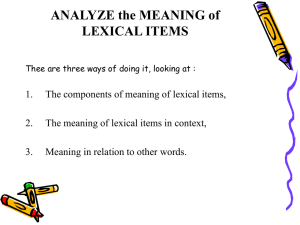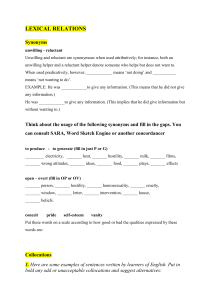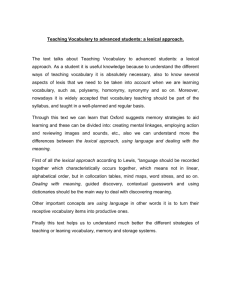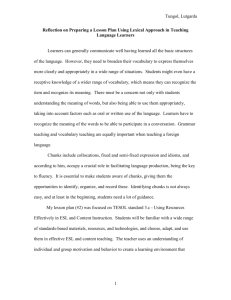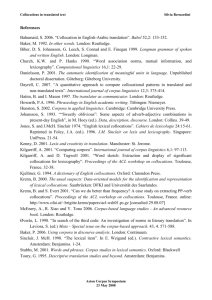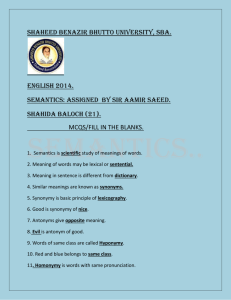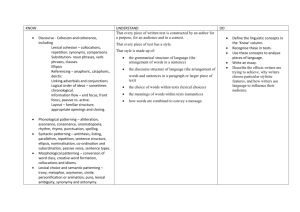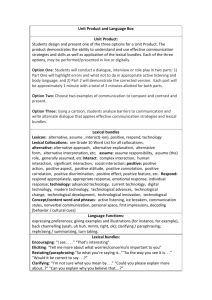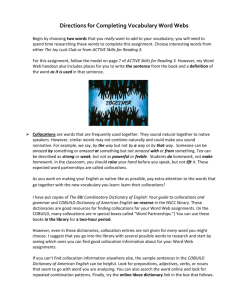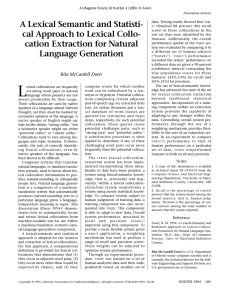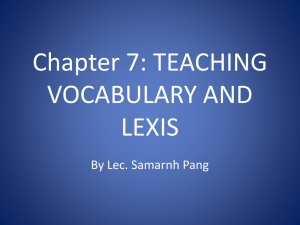UNIT 5 - Lexical Relations
advertisement
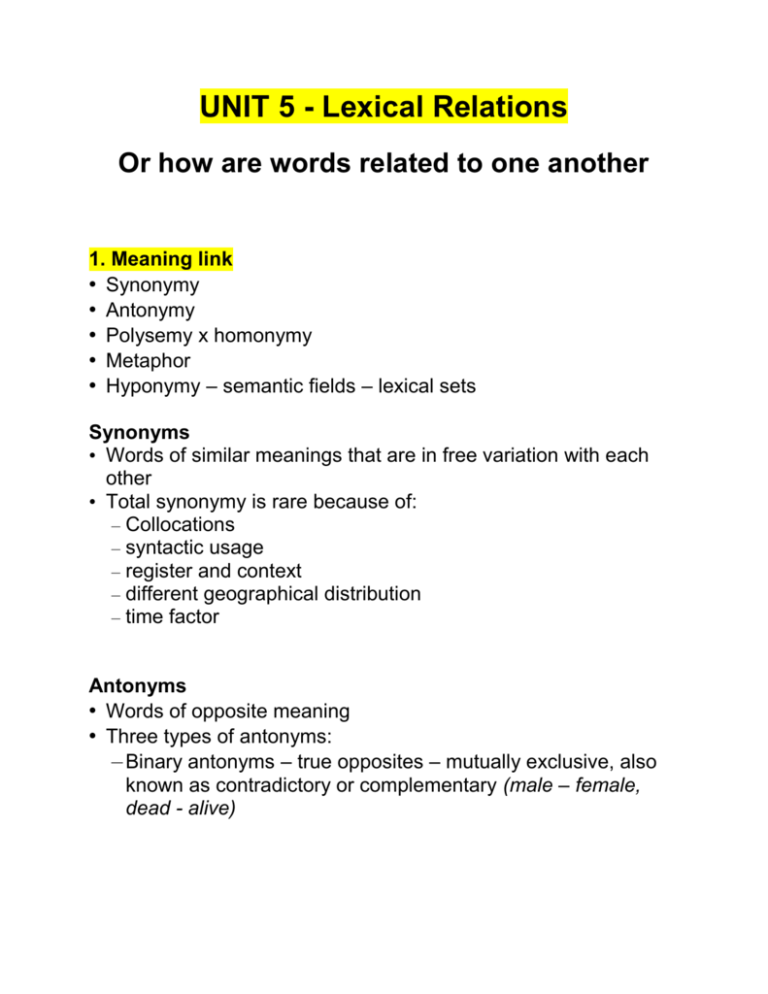
UNIT 5 - Lexical Relations Or how are words related to one another 1. Meaning link • Synonymy • Antonymy • Polysemy x homonymy • Metaphor • Hyponymy – semantic fields – lexical sets Synonyms • Words of similar meanings that are in free variation with each other • Total synonymy is rare because of: – Collocations – syntactic usage – register and context – different geographical distribution – time factor Antonyms • Words of opposite meaning • Three types of antonyms: – Binary antonyms – true opposites – mutually exclusive, also known as contradictory or complementary (male – female, dead - alive) – Converseness – reciprocal antonyms – usual in family and reciprocal relationship – (brother – sister, nephew – aunt), (to buy – to sell) – Gradable or contrary antonyms – usually adjectives, they can be put on a scale – (big/ small) Polysemy x homonymy • Polysemy –meanings related to one central meaning, branching • Homonymy – same form, unrelated meaning, different etymology – homonyms, homophones, homographs Metaphor and metonymy • See lecture 3 Hyponymy • Words can be organized into taxonomies • Smaller groupings are called lexical sets • Larger groupings are called lexical fields 2. Links in sentence structure • Collocations • Quotational compounds • Phrasal verbs • Set phrases • Set expressions • Clichés – paddings • • Sayings and proverbs Sentences and quotations Collocation • Lexical valency - a binding force between words • A matter of typicality, no absolute truth Types of collocations • Unmarked collocations • Marked collocations Collocations vs. phraseological units • Collocation is the first stage – typical usage of words • Phraseological unit – fixed sets of words – often a new meaning – a white lie… Quotational compounds • Whole phrase or set of words, hyphenised – Easy-to-follow instructions Phrasal verbs • Many linguists claim that they should be used mainly in speaking rather than in writing Set phrases • Pleased to meet you. • How do you do. Set expressions - Idioms • the last straw • a lame duck Cliché - padding • A phrase that is overused • Also unnecessary words used to make a speech longer Sayings and proverbs • Part of national heritage, often connected with old trades Sentences and quotations • Which is the most quoted from book? • Who is the most quoted author in English?
